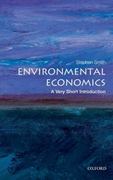Question
In the following exercise, you will represent Company A (the acquirer) which is currently considering acquiring Company T (the target). The value of the company
In the following exercise, you will represent Company A (the acquirer) which is currently considering acquiring Company T (the target). The value of the company depends directly on the outcome of a major oil exploration project it is currently undertaking. If there is an oil strike the company will be worth $60/share under 1 current management or $130/share in Company A's hands. However, if there is no oil strike, the company will be worth only $30/share whether it is managed by Company A or Company T. You have two oil exploration firms give you their best estimates of the probability of an oil strike. Both firms have told you that there is a 50% chance of a strike.
Note, if an oil strike occurs, the potential value of the company under Company A's direction is much greater than its value under Company T. The board of directors of Company A has asked you to determine the price they should offer for Company T's shares. This offer must be made now, before the outcome of the drilling project (strike or no strike) is known. From all indications, Company T would be happy to be acquired by Company A, provided it is at a profitable price. You expect Company T to delay a decision on your bid until the results of the project are in, then accept or reject your offer before releasing the news of the drilling results to the press.
Thus, you (Company A) will not know the results of the exploration project when submitting your price offer, but Company T will know the results when deciding whether or not to accept your offer. In addition, Company T is expected to accept any offer by Company A that is greater or equal to the (per share) value of the company under its own management. As the representative of Company A, you are deliberating over price offers in the range $0/share (this is tantamount to making no offer at all) to $150/share. What price offer per share would you tender for Company T's stock?
2.1 (15 points) What offer should company A make (assuming that managers at both companies are rational and profit maximizing)? What is the expected profit per share resulting from that offer? Explain.
2.2 (15 points) When asked the question above, many people would make offers that are not maximizing expected profits, or even leading to expected losses. What could be common "naive" offers? Explain.
Step by Step Solution
There are 3 Steps involved in it
Step: 1

Get Instant Access to Expert-Tailored Solutions
See step-by-step solutions with expert insights and AI powered tools for academic success
Step: 2

Step: 3

Ace Your Homework with AI
Get the answers you need in no time with our AI-driven, step-by-step assistance
Get Started


